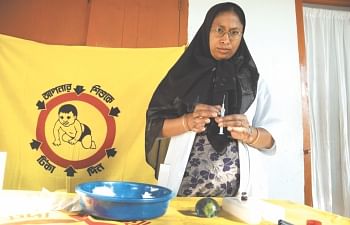| Home - Back Issues - The Team - Contact Us |
 |
| Volume 10 |Issue 46 | December 09, 2011 | |
|
|
Health Measles Attack What is Measles? The measles vaccine protects against the illness. Most children get the vaccine as part of their regular shots. This is why measles is rare in some countries.
What causes measles? You can spread the virus to others from four days before the rash starts until four days after the rash appeared. The virus is most often spread when people first get sick, before they know they have it. What are the Symptoms? When adults get measles, they usually feel worse than children who get it. It usually takes 8 to 12 days to get symptoms after you have been around someone who has measles. This is called the incubation period. How is measles Diagnosed? If you think you have measles, call your doctor so he or she can report the illness to the local health department. How is it Treated? Most people get better within two weeks. But measles can sometimes cause dangerous problems, such as lung infection (pneumonia) or brain swelling (encephalitis). In rare cases, it can even cause seizures or meningitis. If you have been exposed to measles and you have not had the vaccine, you may be able to prevent the infection by getting a shot of the measles vaccine as soon as possible. Babies who are younger than 12 months, pregnant women, and people who have impaired immune systems that can't fight infection may need to get the vaccine if they are exposed to measles.
Copyright (R) thedailystar.net 2011 |
|||
